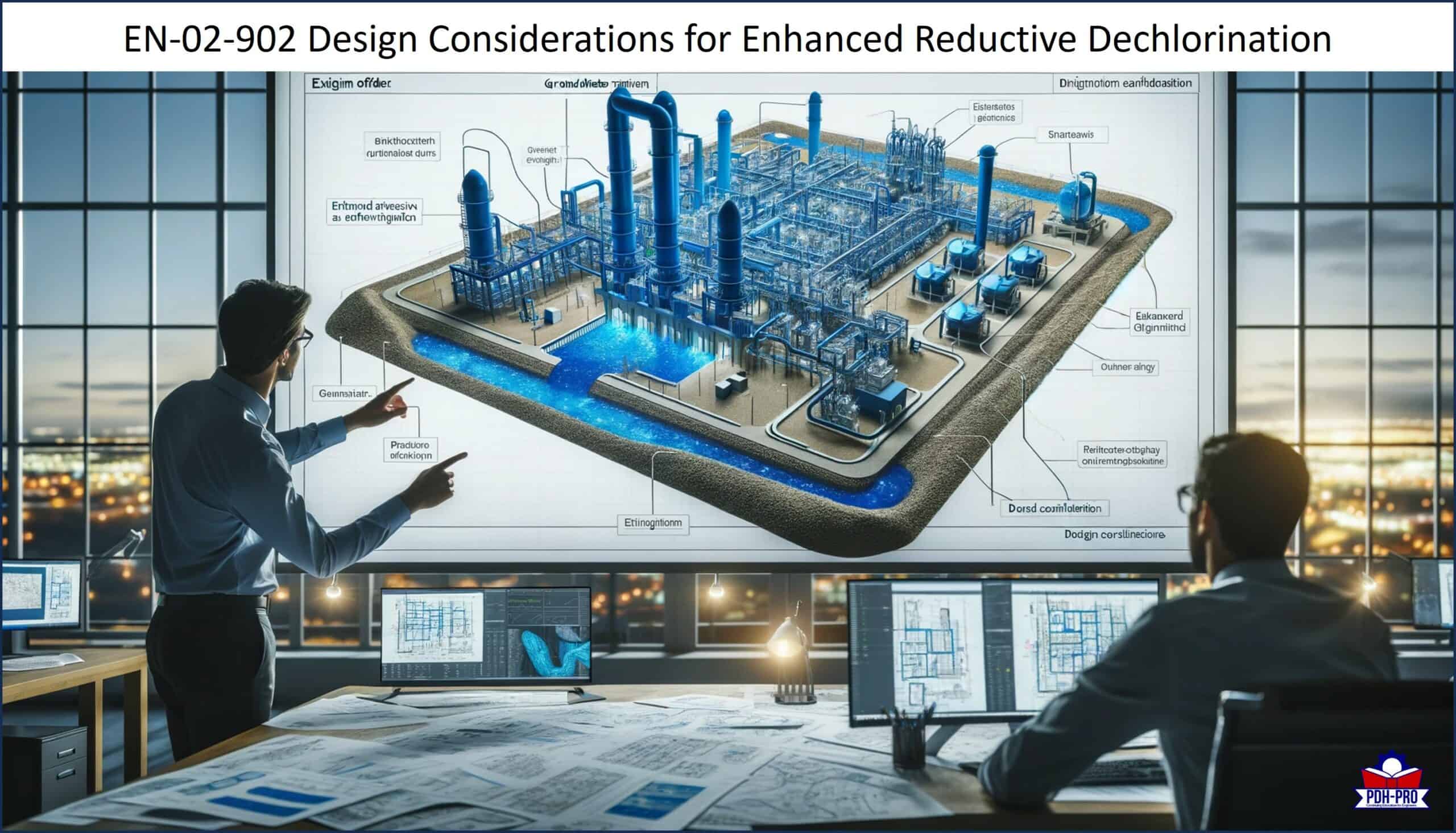
Design Considerations for Enhanced Reductive Dechlorination
Chlorinated solvents in groundwater remain a key issue at contaminated sites, and enhanced reductive dechlorination (ERD) is a frequently selected remedy for treatment of these solvents. This course provides a framework for preparing design submittals for ERD systems, including a summary of best practices for bioremediation design, tips for appropriate quality assurance and quality control (QA/QC) measures, and a listing of available standards and references. It incorporates lessons learned from sites on the design, implementation, and performance of ERD for the remediation of chlorinated solvents in groundwater. The information provided here can be readily incorporated into a design format suitable to the scope of the project.
Once you complete your course review, you need to take a multiple-choice quiz consisting of fifteen (15) questions to earn 3 PDH credits.
Learning Objectives
This course is intended to provide you with the following specific knowledge and skills:
- Overview of ERD such as amendments, key design parameters, and design approach
- Key Conceptual Site Model requirements
- Design requirements including bench-scale and pilot studies, amendment selection, injection plan, monitoring requirements, and optimization
- Consideration of site lithology/geology and its effect on ERD approaches
- Requirements for design drawings and specifications
Download the Course to review and begin earning your PDH credits.
We provide technical courses for PDH credits that meet Board requirements for Professional Engineers, Geologists and Land Surveyors. This courses is guaranteed to be accepted in AK, AL, AR, GA, IA, IL, ID, IN, KS, KY, MD, ME, MI, MN, MO, MS, MT, NC, ND, NE, NH, NJ, NM, NV, OH, OK, OR, PA, SC, SD, TN, TX, UT, VA, VT, WI, WV, and WY. Before purchasing this course, please confirm that your state Board is listed above.
